Scotmid Co-operative was founded with corporate social responsibility (CSR) at the core of its values. We use ten key social and co-operative performance indicators recommended by Co-operatives UK to assess our work in CSR, including supporting local communities and co-operative initiatives, ethical procurement for our products, investing in our people, member democratic participation and environmental initiatives. Full details of our CSR performance for 2012/2013 are available to view in our annual report.
Supporting communities and co-operative initiatives
Scotmid operates a community grant scheme that awards funding for community groups and charities across Scotland. Scotmid spent a total of £245,000 investing in community and co-operative initiatives in 2012/2013, including a community cinema in Balerno, team costumes for a synchronised swimming club in Nairn and hi-visibility vests for school children in Munlochy. Staff and customers also raise money each year for a corporate charity partner. Over £150,000 has been raised to date for our current charity partner, Maggie’s Cancer Caring Centres.
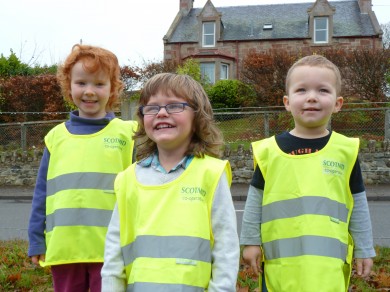
Ethical procurement
The majority of products in our stores are made through the Co-operative Retail Trading Group (CRTG), a wholesale buying group established to centralise the buying power for co-operative societies across the UK. Being a member of the CRTG means that we continue to benefit from their purchasing policies. CRTG is committed to the principles of sound sourcing, animal welfare, food integrity, health and ecological sustainability as set out in their Sustainability Report published in 2011.
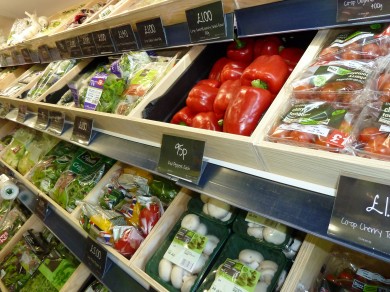
Investing in our people
A key part of our approach to CSR is investing in our staff and members through training and development. This year, 25,000 hours of formal staff training took place, averaging 5.2 hours per employee. These hours included 8,700 of e-learning activity. Our members actively participated in a total of 321 hours of training. Two newly developed training sessions were provided – one skills based and one to increase the knowledge of the co-operative movement in the UK and internationally.
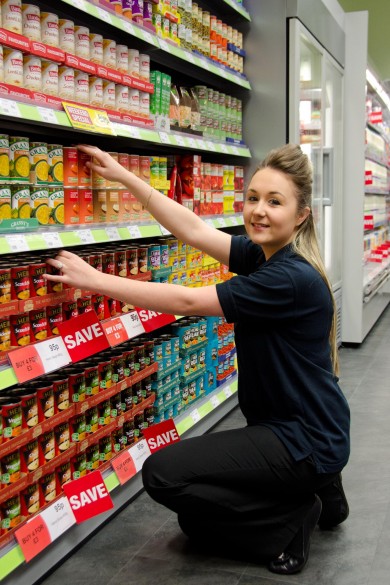
Member democratic participation and economic involvement
260 members attended the Annual General Meeting on 30 April 2012 and 169 members attended the Ordinary General Meeting on 1 October 2012. An information meeting for members living in the North Region was held on 2 October 2012 and was attended by 41 members. Based on sample data, Scotmid’s member economic involvement remains consistent at 13%.
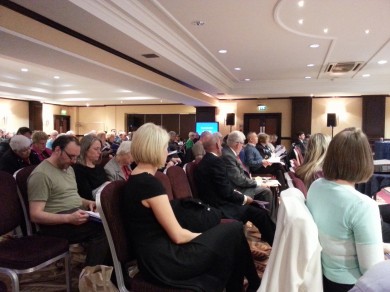
The environment
Scotmid aims to reduce net greenhouse gas emissions by 20% by 2020 (using 2008 levels as a base). Various initiatives are underway to assist the business in achieving this objective and these include the introduction of smart meters, energy efficient lighting and more efficient refrigeration. We are again reporting on direct Greenhouse Gas (GHG) emissions in two ways: net emissions (that treat electricity from renewables as zero carbon emissions) and gross emissions (that treat electricity from renewables in the same way as ‘brown’ electricity). GHG includes carbon dioxide (CO2), methane (CH4) and nitrous oxide (N2O). Carbon dioxide emissions are produced as a direct result of burning fossil fuels. The Society produced an estimated 2,993 tonnes of GHG (net) from on-site operations compared to 3,054 last year. The gross emissions, which include electricity from a renewable source, are 27,916 tonnes. This equates to 0.62 tonnes of GHG per employee.
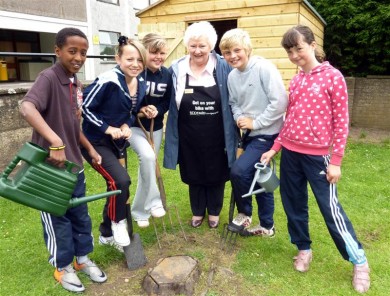
Proportion of waste recycled/reused
Our waste to landfill amounted to an estimated 1,709 tonnes giving a reduction of 12%. Anaerobic digestion is helping to reduce our landfill figures as stores are being converted to this route for food waste on a rolling programme due to be completed in 2013. Our cardboard recycling uses the same method as previously in that CRTG vehicles collect cardboard and plastic from our Food outlets for recycling and have provided an estimated percentage of the total amount of recycled waste attributable to Scotmid. Semichem outlets backload cardboard to our distribution warehouse for recycling. Our Head Office and Funeral offices recycle cardboard, paper and plastic through our waste uplift provider. As a result we estimate that we have recycled 2,079 tonnes of cardboard, 291 tonnes of plastic/paper/dry mixed waste and 165 tonnes of Food waste to anaerobic digestion. These figures indicate that the proportion of waste recycled is in the region of 60%. The combination of a greater degree of recycling, the increased use of anaerobic digestion and the ongoing reduction in packaging by manufacturers has aided overall reduction of waste to landfill.
